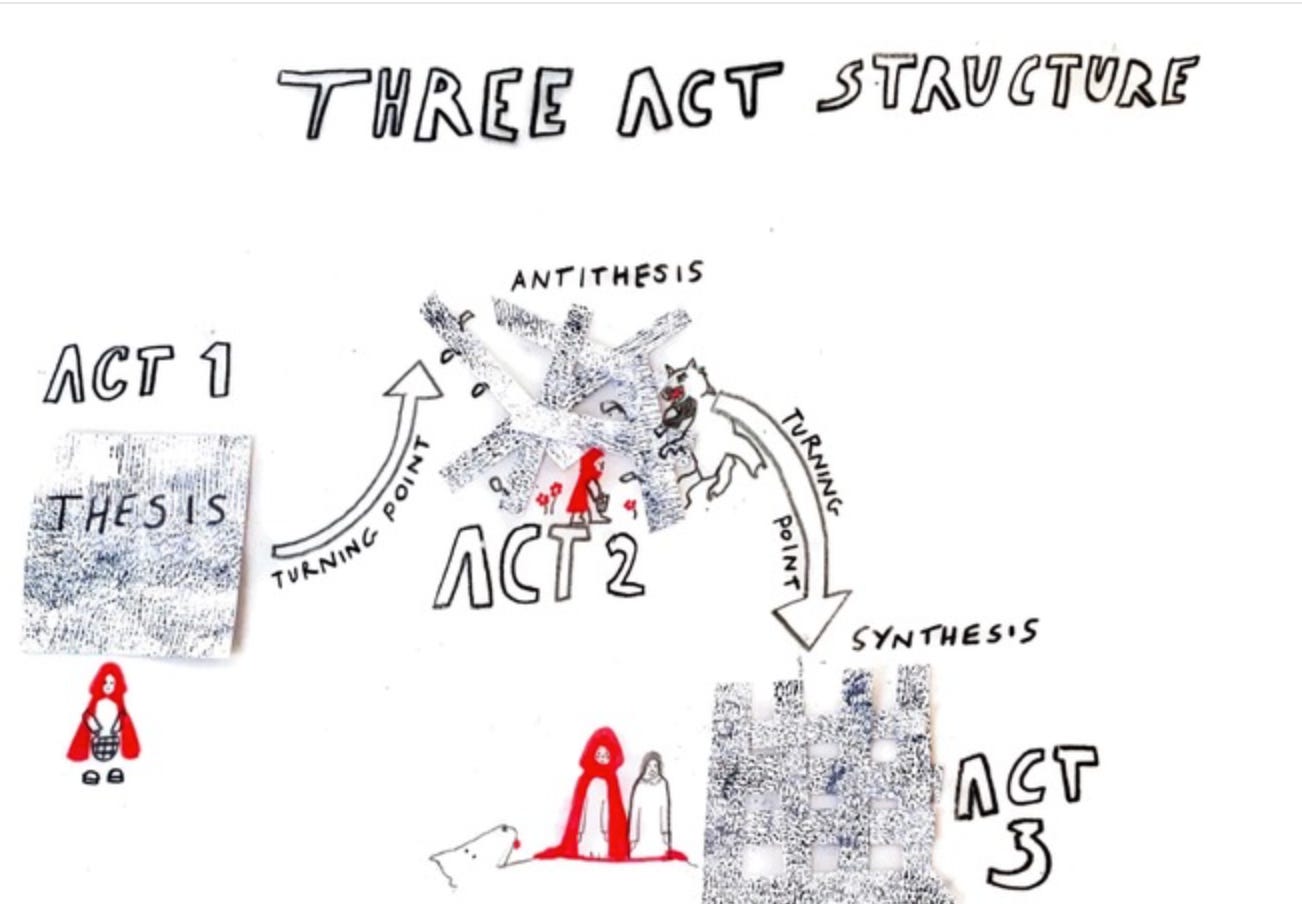Illustration - Lydia Lott https://www.instagram.com/lydialottillustration/
What follows is an extract from my book on writing, ‘Yes! No! But Wait…’ due for publication by Swift Books this summer.
Three-Act Structure is a centuries-old established technique for developing a narrative in a way that will be interesting for the consumer of a story.
It’s pretty simple ( at first glance).
Beginning. Middle. End.
Act One. Act Two. Act Three.
This is the basis of classical drama, dating from the time of the great Athenian playwrights.
But how important is plot in the novel - a much more modern form of storytelling?
In an essay in New York Magazine entitled, ‘Is it Story That Makes Us Read?’, the writer, Christian Lorentzen observes, ‘There’s something hostile to the bagginess of the novel in Aristotle’s notion that the best works are those in which nothing can be subtracted without the meaning being lost’.
He was talking about the assertion from the ‘Poetics’, the Ur-text on storytelling, that if you can lift a part of the narrative out and the plot doesn’t collapse, then it has no place in the story.
We cannot be that strict about the novel.
As Lorentzen observes, it is too baggy a construction.
But at the same time, understanding the principles of dramatic structure and narrative economy is crucial to the modern author.
At least if they want to keep the reader on board.
As George Saunders observes: “We can think of a story as a candy factory. Everything in that factory we expect to be dedicated to the making of candy. Every phone, every department, every procedure.
“Or we’re bouncers in Club Story, asking each part ‘what are you doing in here?’. You better have good answer.
“Don’t make things happen for no reason. Having made something happen, make it matter“
Saunders was talking about short stories - a much tighter form than the novel, as is the drama or screenplay.
But it’s a good principle to apply for the novelist - albeit within a slightly looser framework.
+++
Plots, you might say, are tidied up versions of life.
But are we attracted to the relative tidiness of plots in the first place?
Keep reading with a 7-day free trial
Subscribe to Tim Lott's Writing Boot Camp & Philosophy Jam to keep reading this post and get 7 days of free access to the full post archives.




